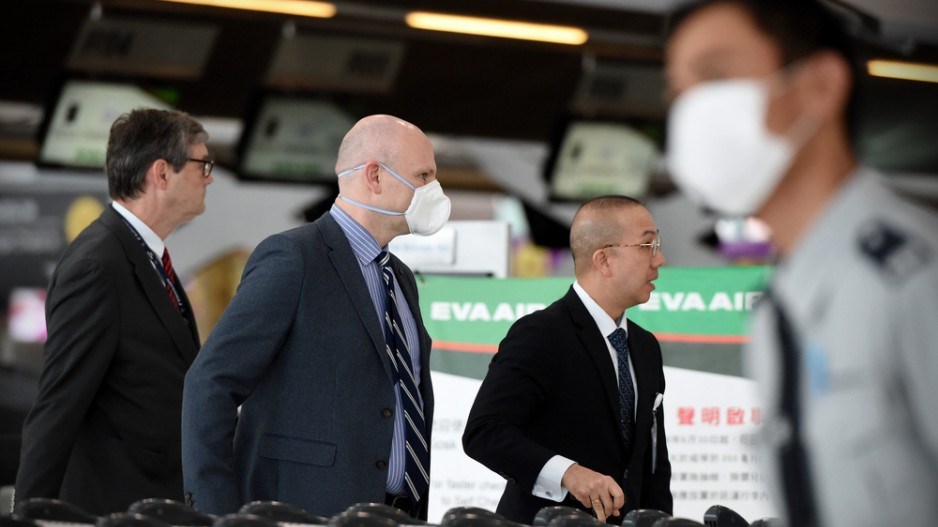Ottawa’s recommendation that all Canadians travelling abroad return home as soon as possible is a smart one – especially considering the uncertainty facing the global commercial aviation sector in the wake of the COVID-19 pandemic, industry observers say.
Analysts say that Canada will likely avoid many of the issues, such as the overcrowding of airports and the strain on border-crossing resources that has been seen in countries like the United States in repatriating its citizens, since Ottawa’s decision to close its borders to foreigners gives Canada a last-mover’s advantage in learning from the mistakes of others.
“At every step, Canada seems to have done a better job on this front,” said Washington, D.C.-based transportation analyst Seth Kaplan. “It has tested as many people as the U.S. with about a tenth of its population, and it’s fair to give a certain benefit of the doubt that things are done in a more data-driven way then how things have been done in the U.S.”
In addition, Kaplan said, Canada’s international flights are more highly concentrated in the first place, which makes a repatriation effort easier logistically than in the United States. Prime Minister Justin Trudeau said last week that all but four Canadian airports – Vancouver, Calgary, Toronto-Pearson and Montreal-Trudeau – would be closed to international flights, but Kaplan noted that doesn’t pose a big problem.
“One difference is that, in Canada, the overwhelming percentage of international traffic – excluding those from the U.S. – are already coming into those four airports,” he said, noting about 95% of Canada’s non-U.S. international flights in 2018 were handled by those four airports. “The international traffic in the U.S. is much more diffused; you have a couple of dozen airports that handle quite a bit of international traffic, so the Canadian airports where you can still return are the airports you usually go through anyways.”
In 2018, Toronto-Pearson handled 48.4% of total non-U.S. international air passenger traffic coming into Canada; Vancouver and Montreal took up about 20% each.
Kaplan added that part of the chaos seen at U.S. hubs like New York’s John F. Kennedy International Airport earlier this month stemmed from the erratic way the White House and U.S. President Donald Trump announced the country’s European travel ban, which left people unsure about the status of the possibility of returning to North America. This caused a panic-driven rush to return home that was policy-driven, and shouldn’t repeat itself in the Canadian case, he said.
More restrictions to travel, he added, may come from the airlines themselves. As demand for international flights dwindle as countries close their doors, air carriers will be forced to cancel routes and flights to stave off losses as much as possible – meaning the options of Canadians seeking flights to get home may become increasingly scarce as time goes on.
For example, Kaplan cited Qatar’s decision to stop international flights as a major harbinger of what’s to come, as Gulf-area airlines play an integral role of linking continental travel in the current aviation network system.
“At this moment, in terms of finding a seat, you can do it because, yeah, supply has vastly cut, but demand has been down even more. Right now, there are still some intercontinental connections – not many of them, mind you – so you can still do it. But there’s no telling what the future is going to hold.
“Airlines like Qatar Airways are a popular way for people to connect between two points anywhere in the world. So if you want to go from India to Toronto via Doha, well, that’s now gone as an option. More and more of the common way people get around are going away, so it’s fair to say we may be looking at very few international flights [worldwide] before long.”
Both Air Canada and WestJet have announced cutbacks in order to deal with the COVID-19-induced malaise over the travel industry. Madhu Unnikrishnan, the California-based editor of industry publication Airline Weekly, said there’s another seldom-discussed area of concern: As flight demand dwindles while the number of infections continue to rise, there have been no clear guidelines on whether some countries may start banning international carriers from operating in their markets.
“There’s now even a domestic travel ban that’s under consideration in the United States,” Unnikrishnan said about possible future developments that may further cripple the commercial aviation industry’s ability to deliver people home to North America. “If you asked me last week about the outlook for the airline industry, I would have given you a different answer than now. If you asked me two days ago, I would have given you a different answer…. I don’t know how to predict what will happen, but [further cancellations are] absolutely not out of the question.”
The only previous cases of major flight disruptions he can point to as case studies are the 9/11 terrorist attacks that shut down U.S. airspace for days and the 2010 eruption of the Eyjafjallajokull volcano in Iceland that grounded transatlantic flights for weeks. But neither compares in scope to the current situation, Kaplan said.
He added that, at least for U.S. citizens, the urgency of the situation appears to have hit home for some U.S. residents abroad, and Canadians may be feeling the same urgency to come home.
“We have friends who moved to Kiev just three weeks ago, and they ran back to the States last Friday,” Kaplan said. “That was their new home over there, and Ukraine hasn’t had many cases, but they just said that, ‘If things go wrong, we’d rather it happen where we have medical facilities that we are familiar with.’ Clearly, there are people doing this, if only for the fear that they may lose the option of coming home, and not because they are sure they’ll be better off here versus the other place.”




